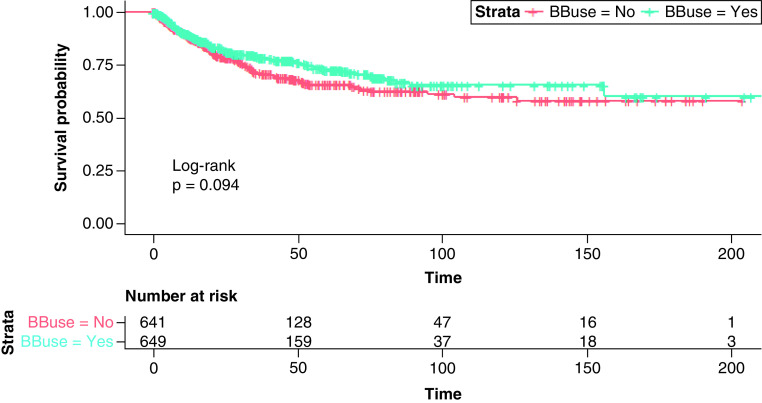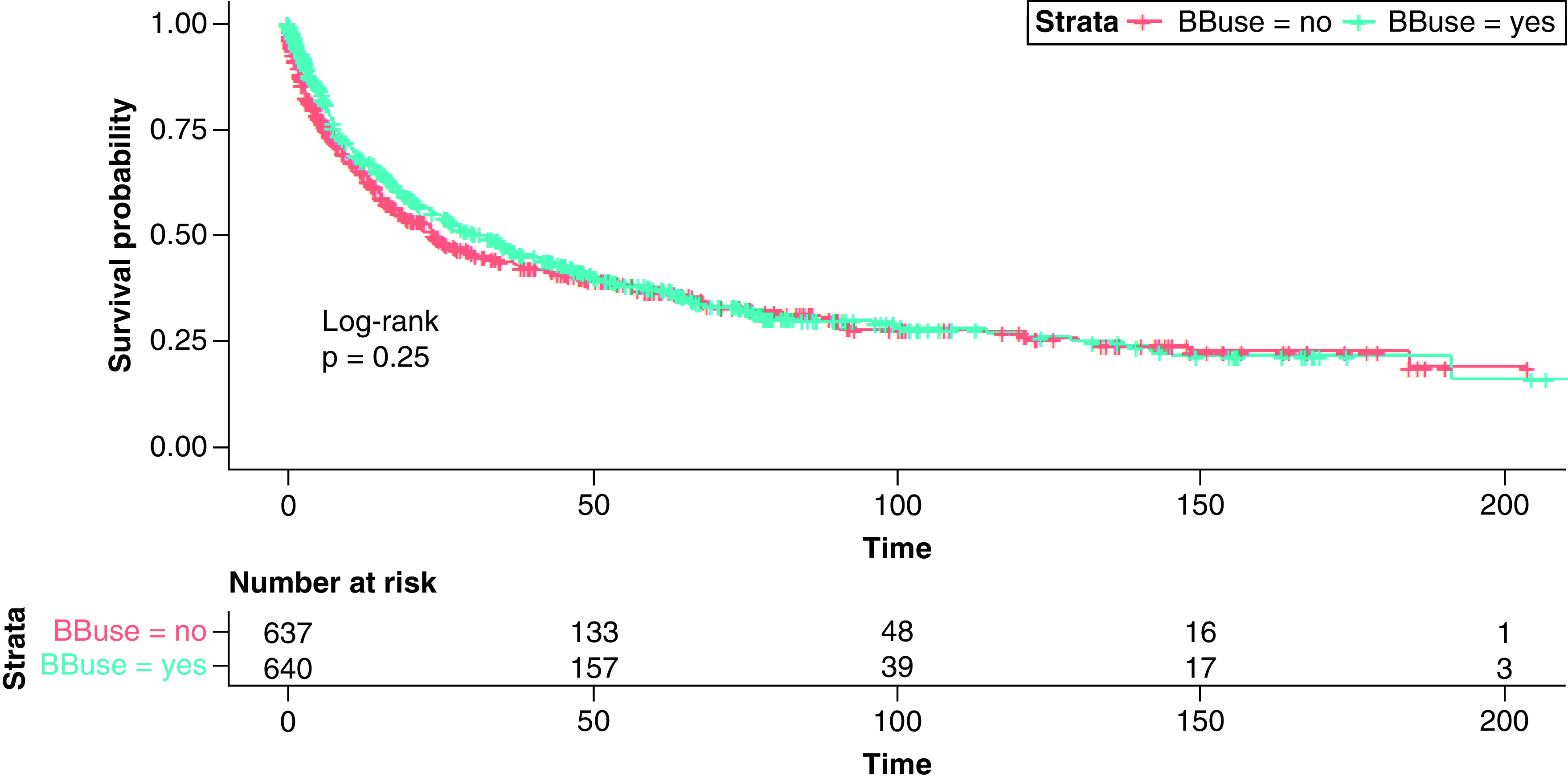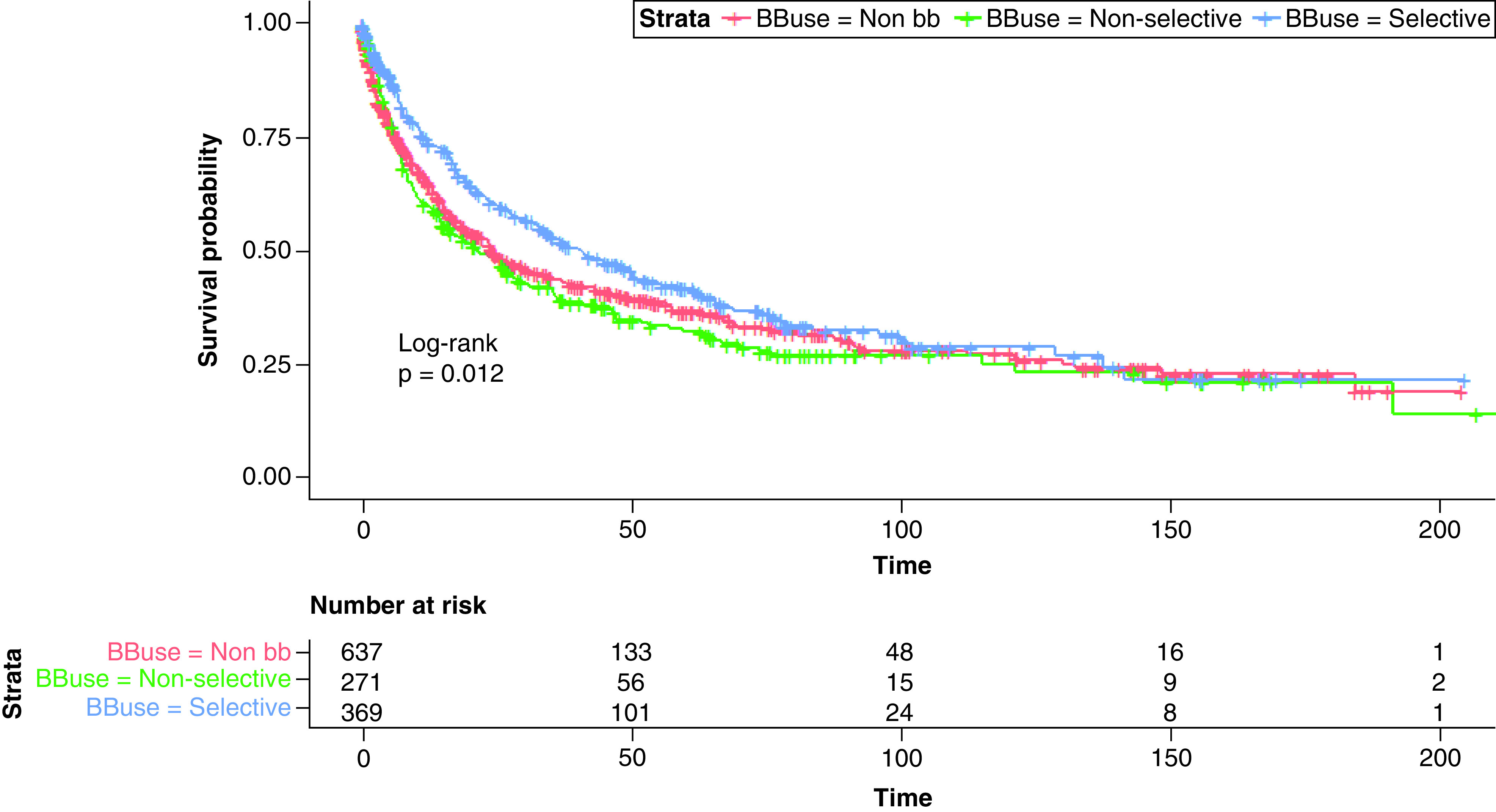Impact of β-blockers on survival outcomes in patients with unresectable hepatocellular carcinoma.
IF 1.2
Q4 ONCOLOGY
引用次数: 0
Abstract
Background: β-blockers (BBs) have shown promise in improving overall survival (OS) in patients with breast, ovarian, pancreatic and lung cancer. However, few studies have evaluated the impact of BBs on unresectable hepatocellular carcinoma (HCC). Methods: The authors compared clinical data and outcomes between unresectable HCC patients based on whether they were prescribed BBs. Results: There was significantly decreased disease progression in the BB group compared with the non-BB group (22.8 vs 28.0%; p < 0.05). No difference was seen in OS or progression-free survival between groups. Those specifically on selective BBs had improved OS (hazard ratio: 0.75; 95% CI: 0.61–0.94; p = 0.01) and progression-free survival (hazard ratio: 0.66; 95% CI: 0.45–0.96; p = 0.03) compared with non-BB patients. Conclusion: Although the authors' study did not demonstrate that BBs improve OS in HCC, it did show decreased disease progression among patients with HCC who were taking BBs compared with those who were not.



β受体阻滞剂对不可切除肝细胞癌患者生存结局的影响。
背景:β受体阻滞剂(BBs)有望改善乳腺癌、卵巢癌、胰腺癌和肺癌患者的总生存期(OS)。然而,很少有研究评估BBs对不可切除的肝细胞癌(HCC)的影响。方法:作者比较了不可切除HCC患者的临床数据和结果,基于他们是否开了bb。结果:与非BB组相比,BB组的疾病进展明显减少(22.8% vs 28.0%;结论:虽然作者的研究没有证明BBs改善HCC的OS,但它确实表明,与未服用BBs的HCC患者相比,服用BBs的HCC患者的疾病进展有所减少。
本文章由计算机程序翻译,如有差异,请以英文原文为准。
求助全文
约1分钟内获得全文
求助全文
来源期刊

Hepatic Oncology
ONCOLOGY-
CiteScore
0.40
自引率
0.00%
发文量
4
审稿时长
13 weeks
期刊介绍:
Primary liver cancer is the sixth most common cancer in the world, and the third most common cause of death from malignant disease. Traditionally more common in developing countries, hepatocellular carcinoma is becoming increasingly prevalent in the Western world, primarily due to an increase in hepatitis C virus infection. Emerging risk factors, such as non-alcoholic fatty liver disease and obesity are also of concern for the future. In addition, metastatic tumors of the liver are more common than primary disease. Some studies report hepatic metastases in as many as 40 to 50% of adult patients with extrahepatic primary tumors. Hepatic Oncology publishes original research studies and reviews addressing preventive, diagnostic and therapeutic approaches to all types of cancer of the liver, in both the adult and pediatric populations. The journal also highlights significant advances in basic and translational research, and places them in context for future therapy. Hepatic Oncology provides a forum to report and debate all aspects of cancer of the liver and bile ducts. The journal publishes original research studies, full reviews and commentaries, with all articles subject to independent review by a minimum of three independent experts. Unsolicited article proposals are welcomed and authors are required to comply fully with the journal''s Disclosure & Conflict of Interest Policy as well as major publishing guidelines, including ICMJE and GPP3.
 求助内容:
求助内容: 应助结果提醒方式:
应助结果提醒方式:


